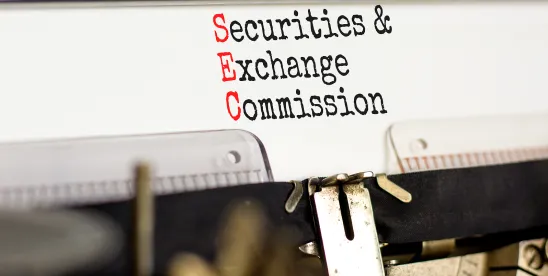On September 27, the U.S. Securities and Exchange Commission (SEC) announced settled charges with a Florida-based registered investment adviser, GQG Partners LLC, over allegations that the firm utilized agreements which impeded the ability of potential hires and a former employee to blow the whistle on securities violations. GQG is to pay $500,000.
SEC Rule 21F-17(a) prohibits companies from impeding the ability of individuals to blow the whistle to the SEC, including through the use of confidentiality agreements, non-disclosure agreements and other agreements.
According to the SEC, “GQG entered into non-disclosure agreements with 12 candidates for employment that prohibited them from disclosing confidential information about GQG, including to government agencies.”
These agreements allegedly required candidates to alert the company to any SEC request for information and prohibited candidates from responding to requests which arose from voluntary disclosures.
Furthermore, the SEC alleges that GQG entered into a settlement agreement with a former employee which violated Rule 21F-17(a). According to the SEC, “the settlement agreement said that it permitted reporting possible securities law violations to government agencies, including the Commission; however, it also required the former employee to affirm that he or she had not done so; was not aware of facts that would support an investigation; and would withdraw any statements already made that might support an investigation.”
“Whether through agreements or otherwise, firms cannot impose barriers to persons providing evidence about possible securities law violations to the SEC, as GQG did,” said Corey Schuster, Co-Chief of the Division of Enforcement’s Asset Management Unit. “Even agreements that contain carve-out language allowing people to voluntarily report to the SEC can be violative if restrictive language in a separate provision impedes voluntary reporting to the Commission staff.”
Increased Enforcement of Rule 21F-17(a)
While the SEC instituted Rule 21F-17(a) in 2011 and first took an enforcement action over alleged violations of it in 2016, the Commission’s enforcement efforts around the rule have increased dramatically over the past year.
Notably, in January, the SEC sanctioned J.P. Morgan $18 million for utilizing confidentiality agreements which impeded clients from blowing the whistle to the SEC Whistleblower Program. This was the largest penalty ever levied for Rule 21F-17(a) violations.
Geoff Schweller also contributed to this article.




 />i
/>i

